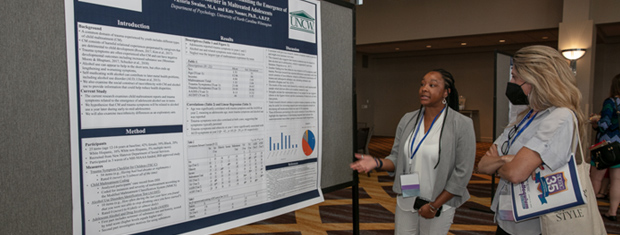




The APSAC Advisor is a peer reviewed quarterly news journal for professionals in the field of child abuse and neglect.
The APSAC Advisor provides succinct, data-based, practice-oriented articles that keep interdisciplinary professionals
informed of the latest developments in policy and practice the field of child maltreatment. It is designed to highlight
best practices in the field and publish original articles and current information about child maltreatment for professionals
from a variety of backgrounds including medicine, law, law enforcement, social work, child protective services, psychology,
public health and prevention in the U.S.
 If you wish to learn more about submitting an article to the Advisor, please click here.
If you wish to learn more about submitting an article to the Advisor, please click here.
This library contains Advisor issues dating back to the first issue in 1988. The most recent issue appears at the top.
Scroll down to select past issues by year and issue number. Once a publication appears in the box, you
can use the Enlarge button to open the document in a new window or tab (depending on how your browser is set up).
This will allow you to view the document with larger print.
To print a document, first use the Enlarge button to open the document in a new window or tab. Then use your browser's Print command.
To return here from a new tab, close the tab. To return from a new window, click your browser's Back button.
In the listing below, click on a year and issue number to see the articles in that publication.
2006 Number 1
Evidence-Based Practice: Identifying and Removing Barriers to Implementation
Since the earliest days of the social work profession, debates over the extent to which science and research can, or should, inform practice have been common (Bronson, 2000). Various strategies to bridge the gap between research and practice have been proposed over the years, but the recent introduction of evidence-based practice (EBP) to social work may prove to be the best approach yet for linking the two; whether EBP succeeds in bridging the gap between research and practice will depend largely on anticipating possible barriers to using EBP and finding ways of eliminating or minimizing those obstacles.
The Campbell Collaboration:A Reliable Source of Evidence for Practice
Where can professionals find the current best evidence for practice with vulnerable children and families? Many look to published research reviews or the many summaries of “evidence-based practices” (EBP) produced by scholars, government agencies, and professional organizations. But, as I explain, the accuracy of these sources varies. How can we tell whether a research summary is accurate or whether it is an unbiased assessment of the evidence?
The purpose of Journal Highlights is to alert readers to current literature on child abuse. Selected articles from journals representing the variety of disciplines reflected in APSAC's membership are presented in the form of an annotated bibliography.
APSAC Advisor 18(1): Full Issue